As the world grapples with the climatic change menace, there’s an increasing need to shift from fossil fuels and non-renewable sources of energy.
Thankfully, numerous renewable energy sources don’t produce harmful greenhouse gases.
We’ll highlight these energy sources while providing their fair share of upsides and downsides.
Therefore, join us as we elaborate on the critical advantages of renewable energy sources.
What Is Renewable Energy?

Renewable Energy Sources
Any energy in the natural environment we can use without the risk of exhaustion is renewable. A renewable energy example is a solar energy. We can always use it without the risk of depletion.
On the contrary, non-renewable energy sources are natural resources whose reserves deplete as we continue to use them. Examples include fossil fuels like coal and oil. The current non-renewable resource reserves (fossil fuels) will likely run out at some point.
Today, global warming and climate change are rampant primarily because of the increasing use of fossil fuels. Hence, there’s a need to increase the percentage of sustainable sources from the present small percentage.
Types of renewable energy sources
a.) Geothermal power
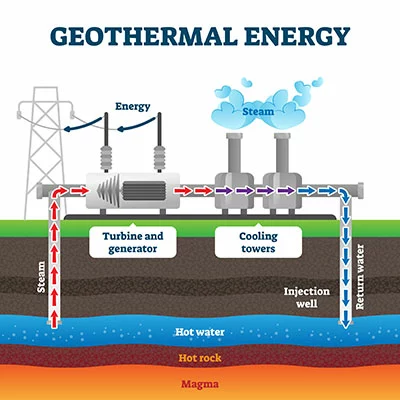
A Geothermal power plant.
Geothermal energy is another source that has remarkably no air pollution. It’s also among the natural energy resources from the heat energy trapped beneath the earth.
b.) Solar Energy
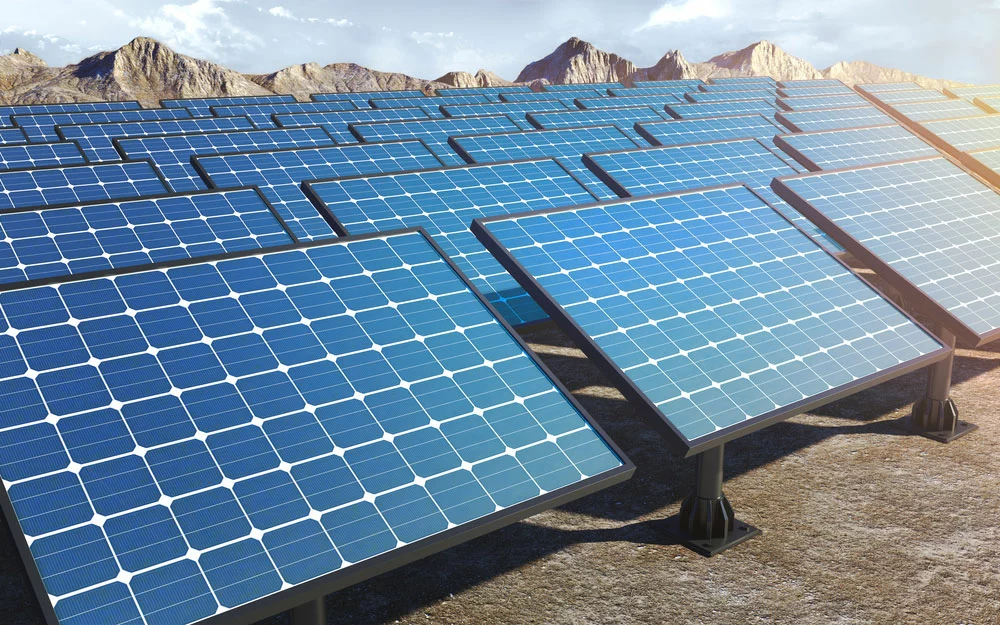
A solar power plant.
It is arguably the easiest renewable energy source to tap, as you only need to invest in a solar panel. There’s a wide range of solar panels, so you must buy the best one depending on your needs. You must also invest in power storage technologies such as solar battery banks.
c.) Biomass Energy
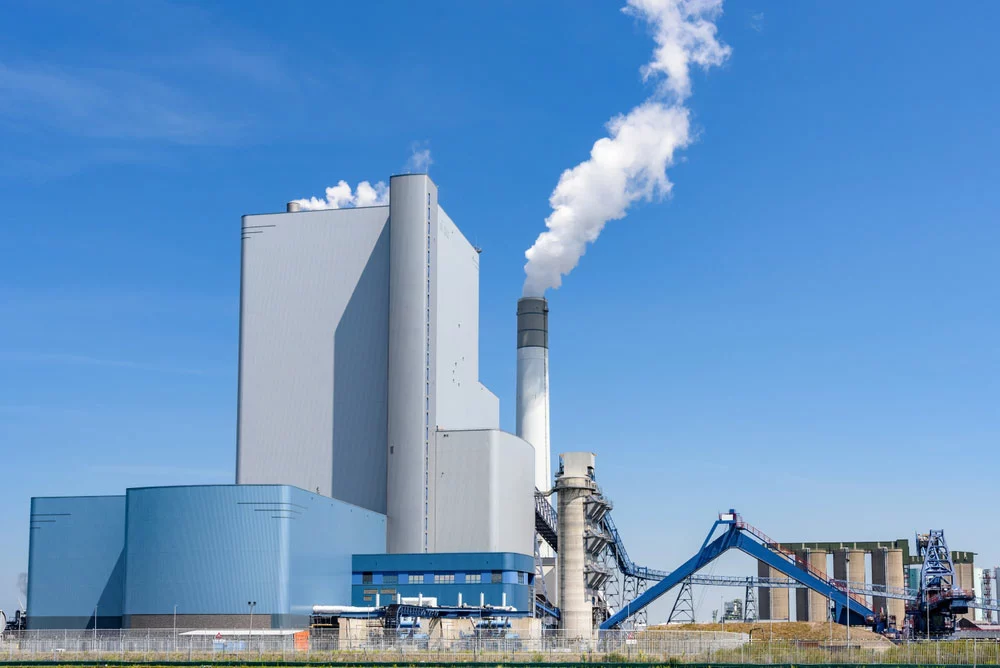
A biomass power plant
We derive this form of energy from burning organic matter and waste. Plants are the reliable primary source of biomass energy. Biomass is also clean energy as we can easily replenish it by growing more plants.
d.) Wind Power
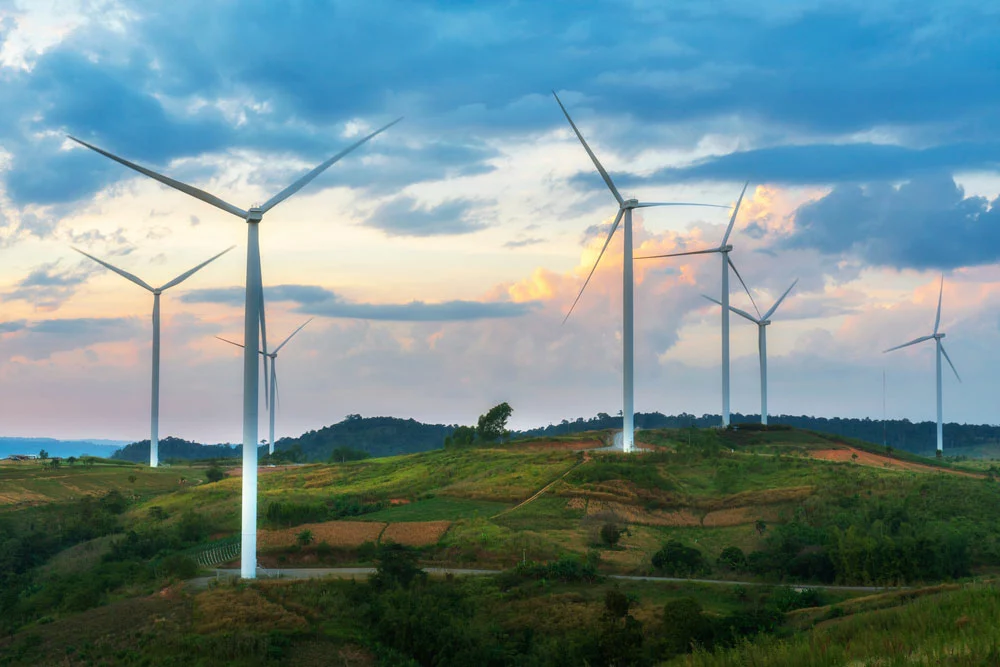
A wind farm.
We can harness the power of the gale-force wind by arresting it via turbines, preferably in a rural setting. Hence, wind farms provide an effective way of supplying electricity in remote places. But, wind projects might require a high initial investment.
e.) Hydrogen
We can also create energy from the most abundant element in the plant- Hydrogen. But again, it’s cost-intensive as we must separate it from other forms, such as water.
f.) Hydroelectric Power
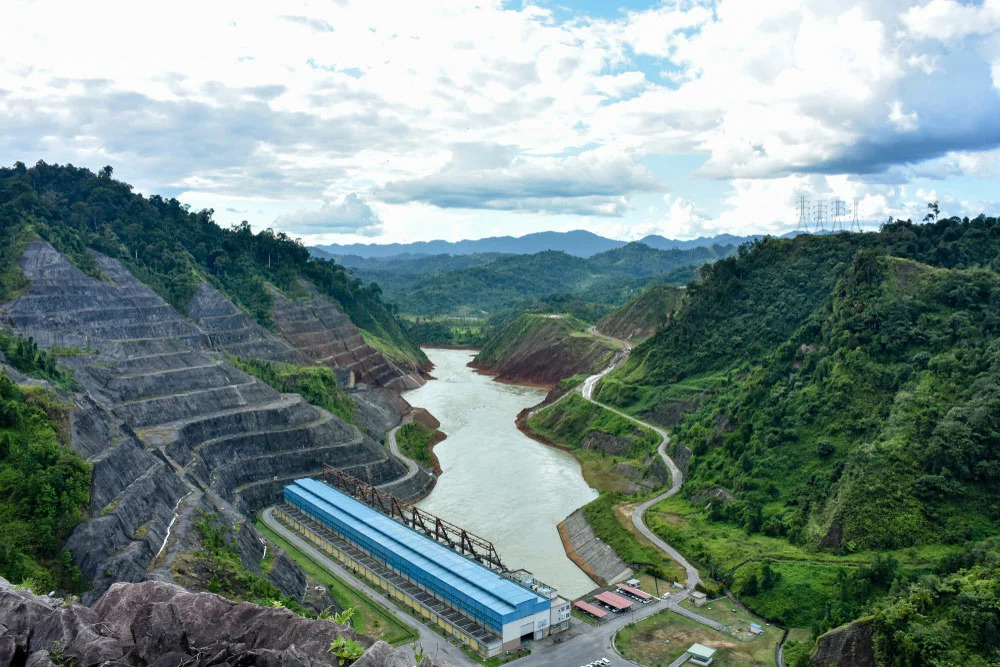
The Bakun Dam is a hydroelectric dam.
Tapping this power is similar to harnessing wind energy. But, in this case, we utilize water rather than wind to create electricity. Like wind energy, this also has a high initial cost as it requires building mega-dams and installing turbines.
g.) Tidal Energy
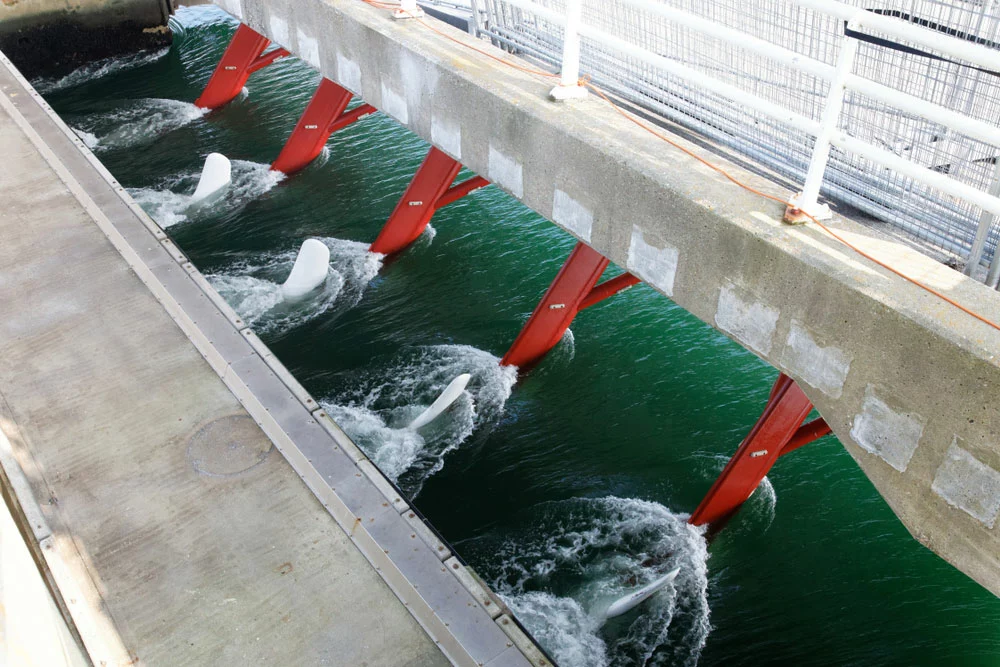
Tidal current provides green electricity.
We can also arrest ocean tides and use them to generate energy, similarly to hydroelectric power. We call this tidal power energy.
Advantages of Renewable Energy
We revere solar power and other renewable energy technologies primarily for the following reasons:
1. Renewable Resources are Eco-friendly

Renewable energy is eco-friendly
Renewable sources are clean as they don’t contribute to environmental pollution like fossil fuel resources. Conversely, fossil energy generation and use yield carbon emissions, sulfur dioxide, and carbon dioxide.
High amounts of greenhouse gases cause acid rain and further degrade the ozone layer, thus causing global warming. Hence, in the future, we ought to adopt more clean energy sources such as solar power and energy from the wind.
2. Advantages of Renewable Energy: The Energy is Renewable
There’s no chance we’ll exhaust energy from wind and other renewable sources. But, we consider fossil fuel energy sources as finite resources as they’ll deplete at some point.
Thus, the future lies in adopting renewable energy technology for green energy that will last forever.
3. Advantages of Renewable Energy: Zero Carbon Emissions
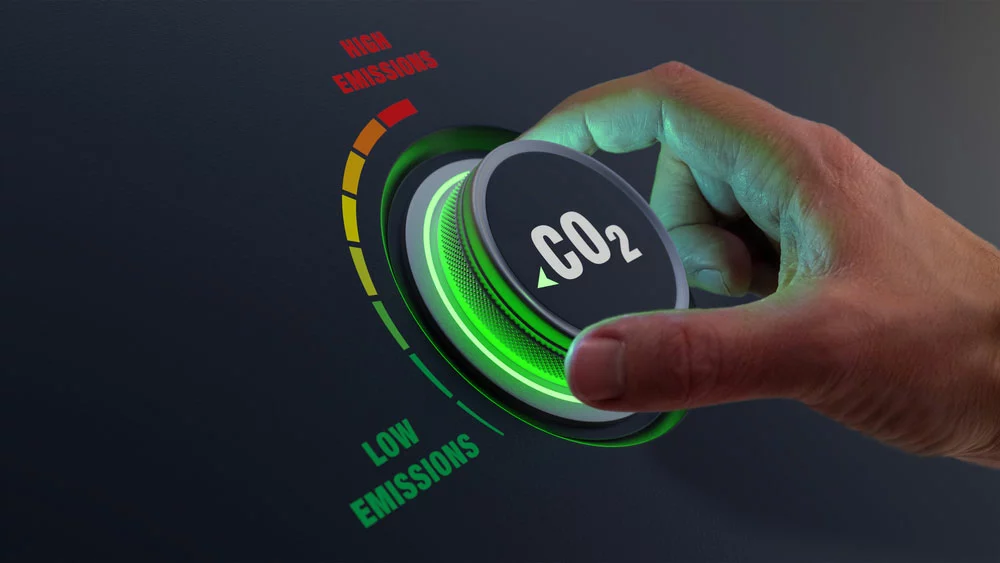
Renewable energy has low carbon emissions.
Greenhouse gases and carbon emissions are disastrous to our environment, and we need an energy source with no such emissions. Renewable energy sources are the ideal clean energy source as they have no remarkable emissions.
4. Advantages of Renewable Energy: Reliable Energy Source
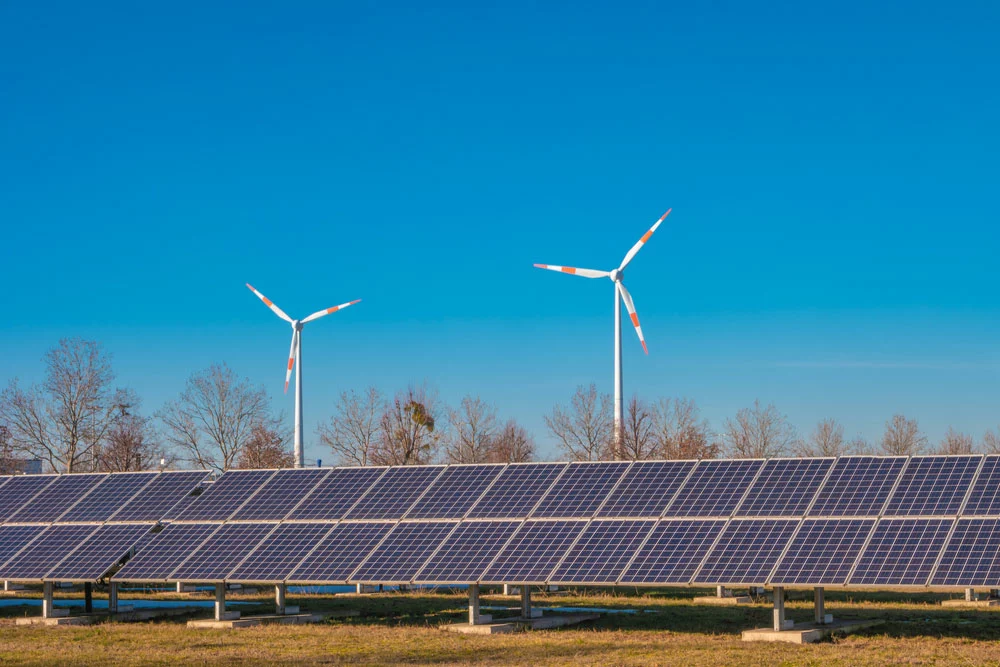
Dependable energy sources.
Fossil fuels have served us well in the past years, but this has made us over-reliant on them for our energy needs. Also, there has been a spur of trade disputes, energy price spikes, and political instabilities.
While these aspects affect the energy policy of world countries, they also affect their economic well-being. The solution, therefore, lies in renewable energy technology that is less prone to such issues.
Worries still linger about the reliability of wind and solar power as alternatives to fossil fuels. However, if we have optimal tapping of the natural resources, they can guarantee continuous electric power supply.
5. Advantages of Renewable Energy: Encourages Job Creation
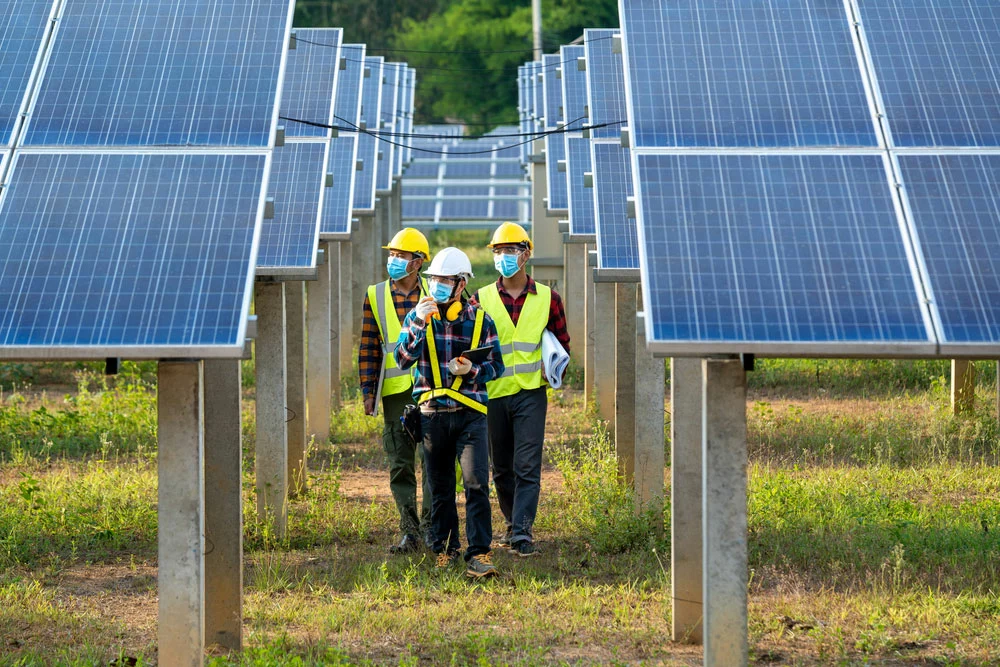
Renewable technologies create new jobs.
Renewable energy industries are spurring up in many world parts as nations continue setting up renewable energy generation facilities.
Also, businesses such as the solar cells trade have become prominent as the demand for the panels soar.
Hence, the more we limit fossil fuel energy generation and focus on green energy, the more we create new jobs.
Further, our energy usage is not stopping anytime, and we need more wind farms and solar panel manufacturing. All this will create jobs.
6. Advantages of Renewable Energy:
Less Maintenance of Facilities
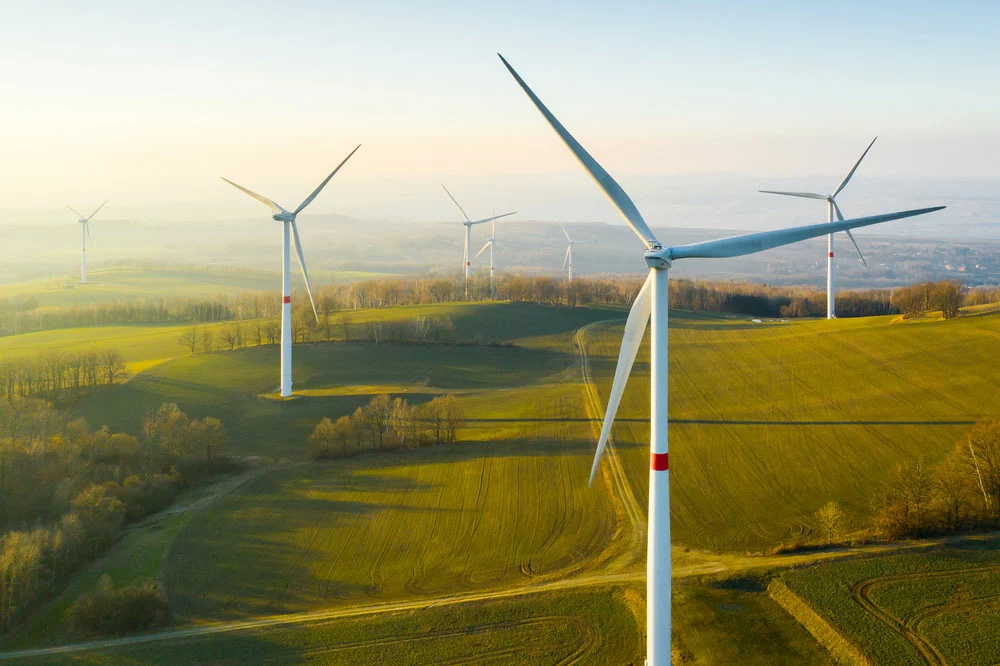
A wind farm has little to no maintenance costs.
You’ll incur relatively lesser maintenance costs with renewable energy resources than with non-renewable sources. For instance, there are no moving parts with solar panels and wind power plants. Thus, you don’t need any operating costs.
They also don’t have engines using combustible fuel sources and thus have limited tear and wear. Therefore, if you’re looking for a cheap electricity source with little maintenance, look no further than renewable sources.
7. It Moderates Global Energy Prices
Global energy prices are subject to fluctuations, and one of the ways to curb this is shifting to clean energy mix sources. The latter will cost you a lot in upfront costs but once set up; there will be no further costs. Hence, the production costs will remain constant throughout.
Conversely, fossil fuel energy costs are dependent on inflation and other factors. Hence, they’re ever prone to change.
8. It Improves Public Health and Wellness

Green energy sources are safe for our health.
There are many health benefits if we shift to renewable energy generation. This energy has a relatively lesser carbon footprint. Thus, we have a healthier environment to live in.
A U.S. Environmental Protection Agency report indicates that the country spends an average of $361.7 – $886.5 billion on health. Thus, shifting to renewable energy technology would significantly lower this expenditure.
9. It Saves Money and Resources
Shifting to solar power, geothermal energy, and other renewable energy technologies saves money in operating and maintenance costs. Remember, we harness this power from sustainable resources like the sun, wind, and water, which are also freely available.
10. It Encourages Waste Product Recycling
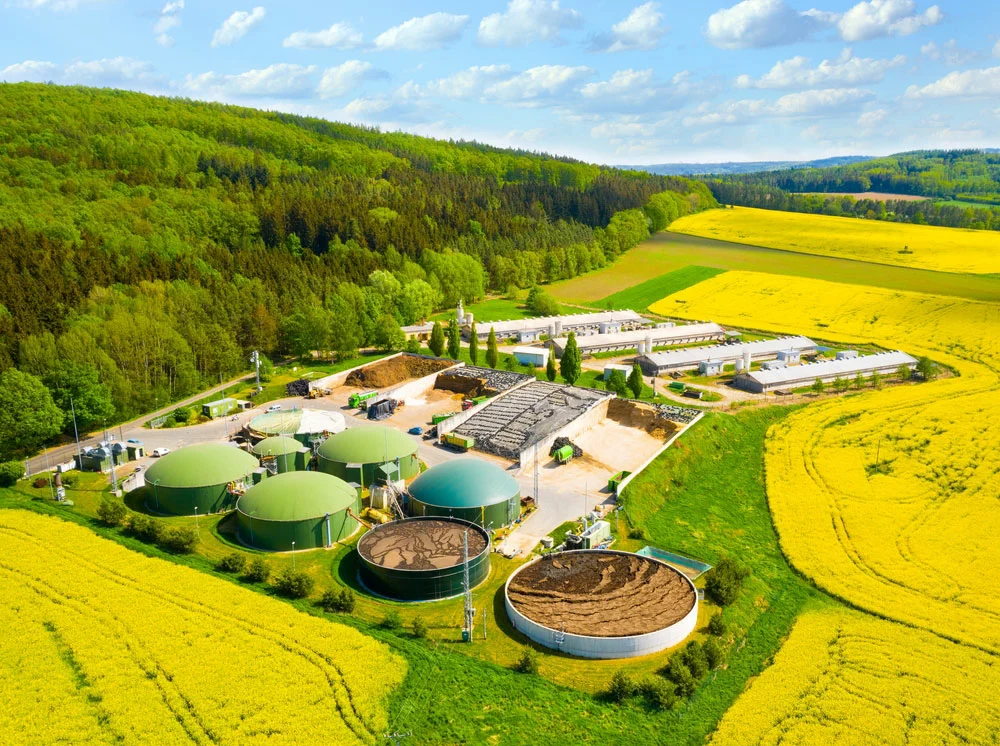
A Biomass Energy Plant
This benefit is specific to biomass energy. The energy source utilizes organic products and wastes such as soybean byproducts and algae. Thus, it limits the amount of waste that finds its way into landfills.
Furthermore, biomass energy creation will reduce carbon dioxide levels in the atmosphere and surroundings.
11. It Curtails Dependence on Foreign Energy Sources
With renewable energy sources like solar panels, you don’t have to rely on imported energy. This way, you can also contribute to the energy independence of your nation.
12. It Comes in a Variety of Forms
We derive non-renewable energy primarily from fossil fuels. But renewable technologies are numerous, ranging from hydroelectric to solar and wind power. It means that there’s immense potential for energy production in the future.
Disadvantages of Renewable Energy
1. Low Electricity Generation Capacity
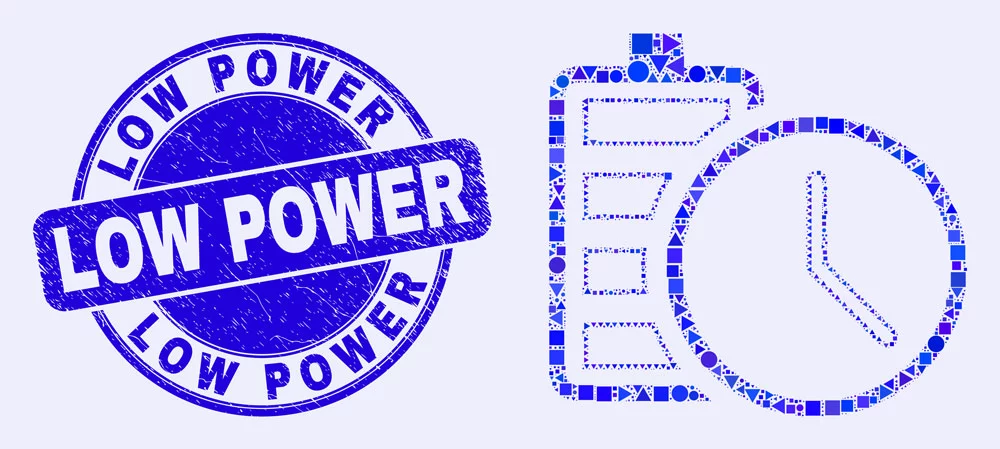
Renewable energies give insufficient power.
Fossil fuels remain arguably the most reliable energy source, especially regarding generation capacity. Conversely, we have not found a way to generate massive and dependable power from renewable technologies.
Thus, we need to up the ante in our renewable energy sector to meet the world’s current energy needs before entirely discarding fossil fuels.
2. It has Relatively High Upfront Costs
Setting up a renewable energy plant such as a solar farm requires a higher upfront investment than conventional energy generators. Thus, there’s a need for more financial incentives (such as the Hawaii solar tax credit) to lower costs and encourage more future investment in renewable energy.
3. It Can Be Unreliable
Reliability remains a gray area with renewable energy systems, as bad weather conditions will affect them. For instance, we must have the following requirements to harness the respective energies.
- First, for hydroelectric power, we rely heavily on rain to fill the dams for sufficient water to run the turbines.
- Also, we need enough wind to run wind turbines in wind plants.
- We also require clear skies (and solar peak hours) for sufficient sunlight to generate power from solar cells.
Hence, unless we use renewable technology as an alternative or supplement to fossil fuels, we cannot entirely rely on them.
4. Requires Large Space to Install
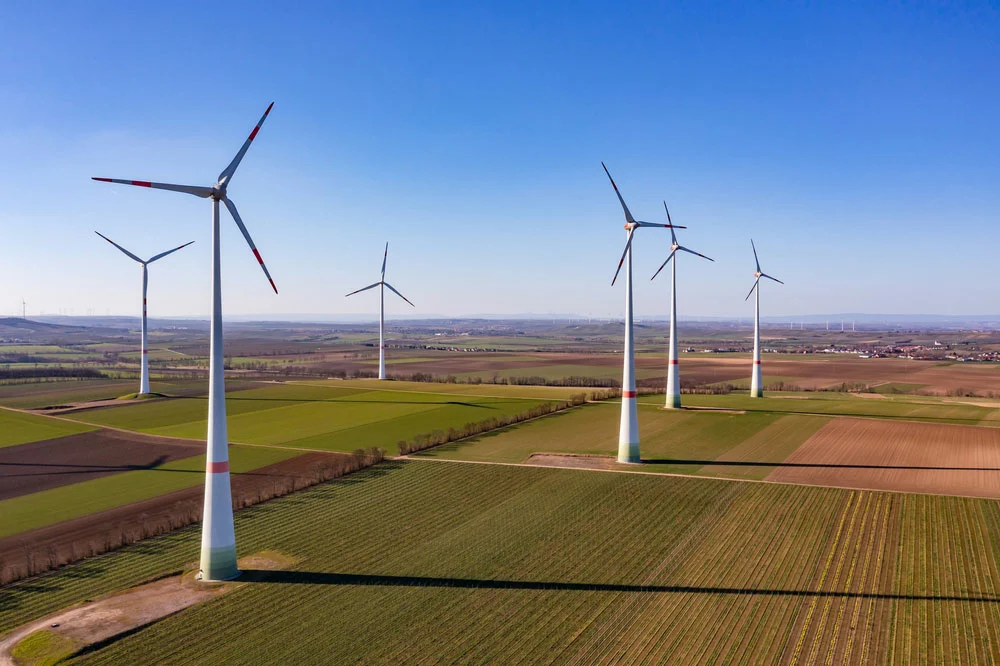
An extensive wind farm
It would take about 40 hectares of panels to produce 20 M.W. of power from a solar plant. Similarly, a nuclear power plant would require 259 hectares to give 1,000MW. The same applies to wind farms and biomass production plants.
Therefore, where space is an issue, we may not produce enough power to supply all our needs.
5. It has Costly Storage Costs
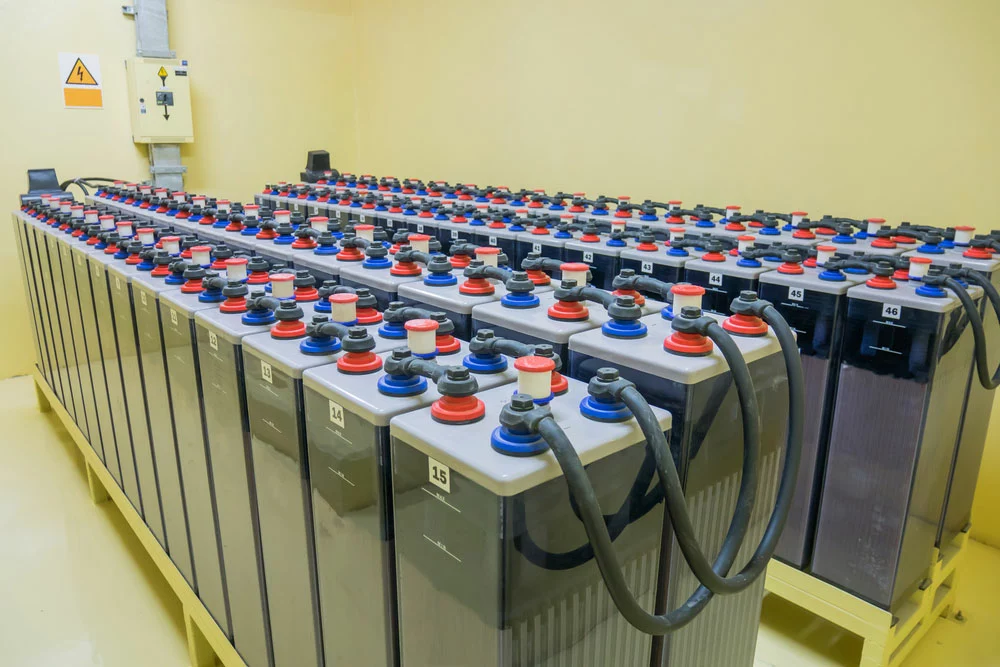
A battery cell system.
Storing renewable energy is expensive, especially considering that you must first invest in batteries. Some of the batteries will also wear out fast. Thus, you’ll have to incur further future costs in replacing them.
Therefore, while operating costs are low, the collection of energy technology will cost quite a lot.
6. It may not be commercially viable
First, we need efficient distribution networks to facilitate renewable energy transmission from its production point to where it is needed. It doesn’t make economic sense especially given this also might require non-renewable resources generation.
7. It may still pollute the environment
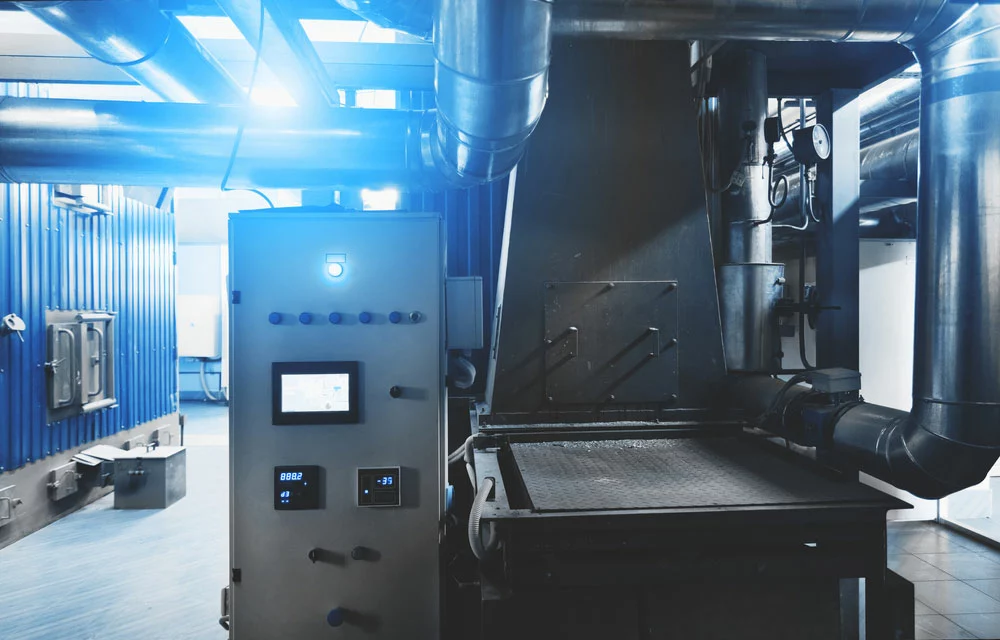
A Biomass boiler.
Are renewable sources purely clean? Not exactly. The manufacturing process of some renewable energies, such as biomass, will give out greenhouse emissions into the atmosphere.
Why is the Future for Renewable Energy?
We are amidst a climate change crisis, excessively polluted air and water bodies, and rising cardiac health issues. Our reliance on fossil fuels is the primary cause of all this.
Luckily, the world has started taking up renewable energy sources despite the apparent challenges that come with it. For instance, in 2020, we had a 29% increase in global renewable electricity production.
In some nations, such as the U.K., the aim is to have a 100% reliance on renewable energies by 2050. Such a target highlights the increasing positive uptake of renewable energy.
More countries need to have such ambitions, and we’ll have a cleaner world in the long run.
Summary
As you have noted, there are more upsides to renewable energy than non-renewable energy sources. Also, while there are apparent downsides, we can mitigate them by extensive investment in the energy industry. This way, we’ll effectively shift from overreliance on fossil fuels.
